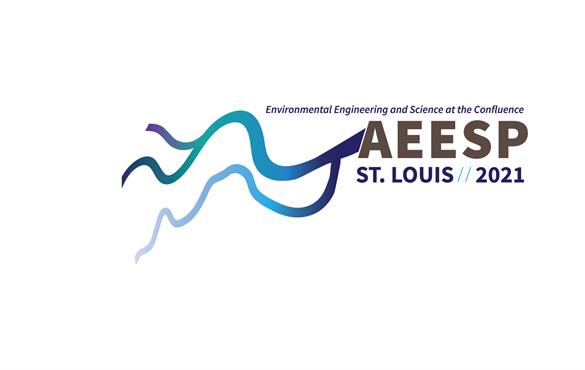McKelvey Engineering to host environmental engineering conference in 2021
McKelvey School of Engineering will host the July 2021 Association of Environmental Engineering and Science Professors Research and Education Conference

About 800 environmental engineering faculty members are expected to convene at Washington University in St. Louis for the July 2021 Association of Environmental Engineering and Science Professors (AEESP) Research and Education Conference.
Hosted by the Department of Energy, Environmental & Chemical Engineering in the McKelvey School of Engineering, the AEESP conference will address the most critical environmental challenges of this era. Its theme, "Environmental Engineering and Science at the Confluence" is designed to span the field of environmental engineering, to explore convergence and to highlight emerging developments. The theme also ties in geographically with St. Louis located at the confluence of the Mississippi, Missouri and Illinois Rivers.
The conference will draw on convergence in environmental engineering and science as an organizing framework for workshops, plenary talks, panel discussions, and oral and poster presentations. The team expects about 300 oral presentations and 350 poster presentations.
"Convergence can draw out some of the most exciting current developments in environmental engineering, and it is sufficiently broad to be inclusive of the diverse education and research of the AEESP," said Dan Giammar, the Walter E. Browne Professor of Environmental Engineering in McKelvey Engineering.
Giammar is conference chair for the 2021 conference, which is co-hosted and co-sponsored by Missouri University of Science & Technology, Southern Illinois University Edwardsville and University of Missouri.
"The AEESP Research and Education Conference is the flagship event for the environmental engineering and science academic community to share advances in novel research and pedagogical activities across the breadth of environmental engineering and science topics," said Junko Munkata Marr, chair of the site selection committee for AEESP and professor civil and environmental engineering at the Colorado School of Mines. "The conference themes vary by host, but always relate to the advancement of innovative research, pedagogy, and the preparation of students for professional practice in environmental engineering and science."
The conference will encompass four areas of convergence: in education and research; in air, water and soil; of research and action; and of research, practice and entrepreneurship.
The conference team plans to hold events for doctoral students and postdoctoral researchers, assistant professors and mid-career professors at the 2021 conference. A new feature of the 2021 conference will be a "Meet the Candidate" poster session in which doctoral students and postdoctoral researchers about to enter the academic job market will introduce their background, research and teaching plans. Also planned is a poster session for assistant professors who are in the first three years of their positions.
"A strength of environmental engineering is its ability to address processes and technologies in water, soil and air," Giammar said. "Our team is well-positioned to dramatically increase the participation of environmental engineers who have expertise in air quality."
The university's history in air quality goes back to the late Raymond Tucker, an engineering professor — and later mayor of the City of St. Louis from 1953-1965 — who brought together regional and national experts to solve St. Louis' poor air quality problem. His efforts established one of the first aerosol and air quality programs in the country.
Members of the organizing committee include Pratim Biswas, the Lucy & Stanley Lopata Professor and chair of the Department of Energy, Environmental & Chemical Engineering; Jason He, professor of energy, environmental & chemical engineering and associate chair of the conference; Young-Shin Jun, professor of energy, environmental & chemical engineering; Avni Solanki, lecturer in energy, environmental & chemical engineering; Joel Burken and Mark Fitch of Missouri University of Science & Technology; Baolin Deng and Maria Fidalgo, both of University of Missouri; and Jianpeng (Jim) Zhou of Southern Illinois University Edwardsville.
Since the conference is scheduled for July 2021, there will be optional activities available for family members.






